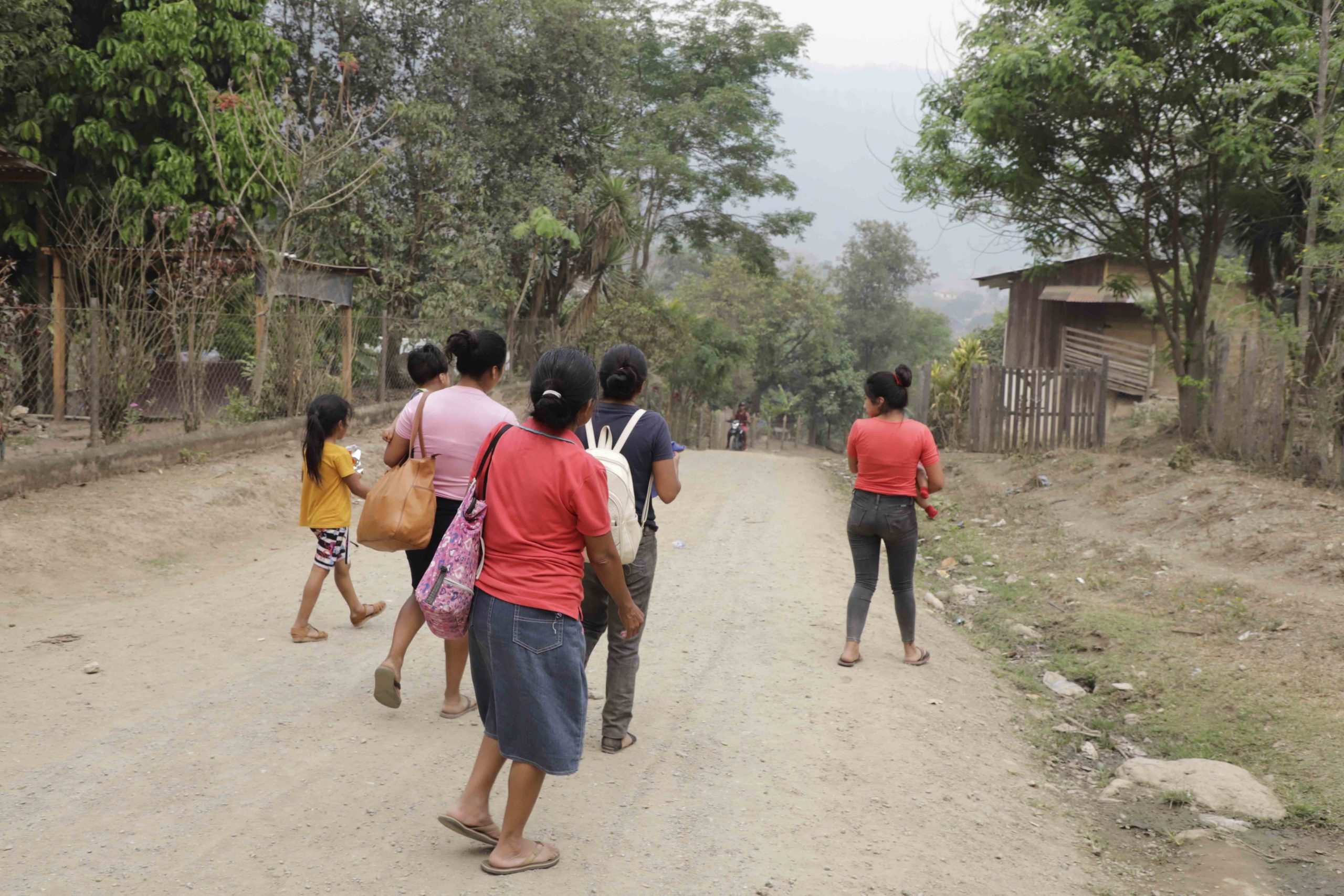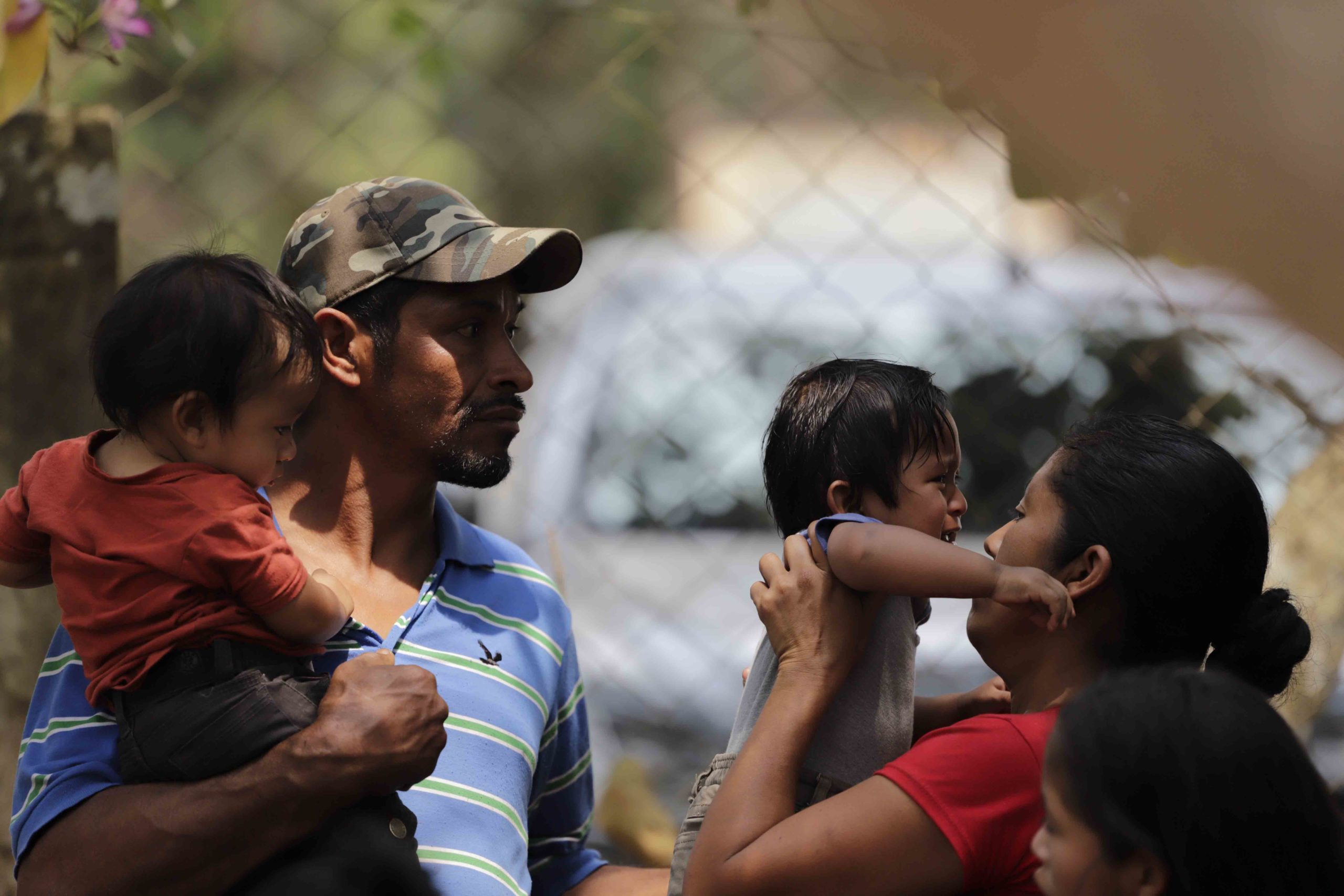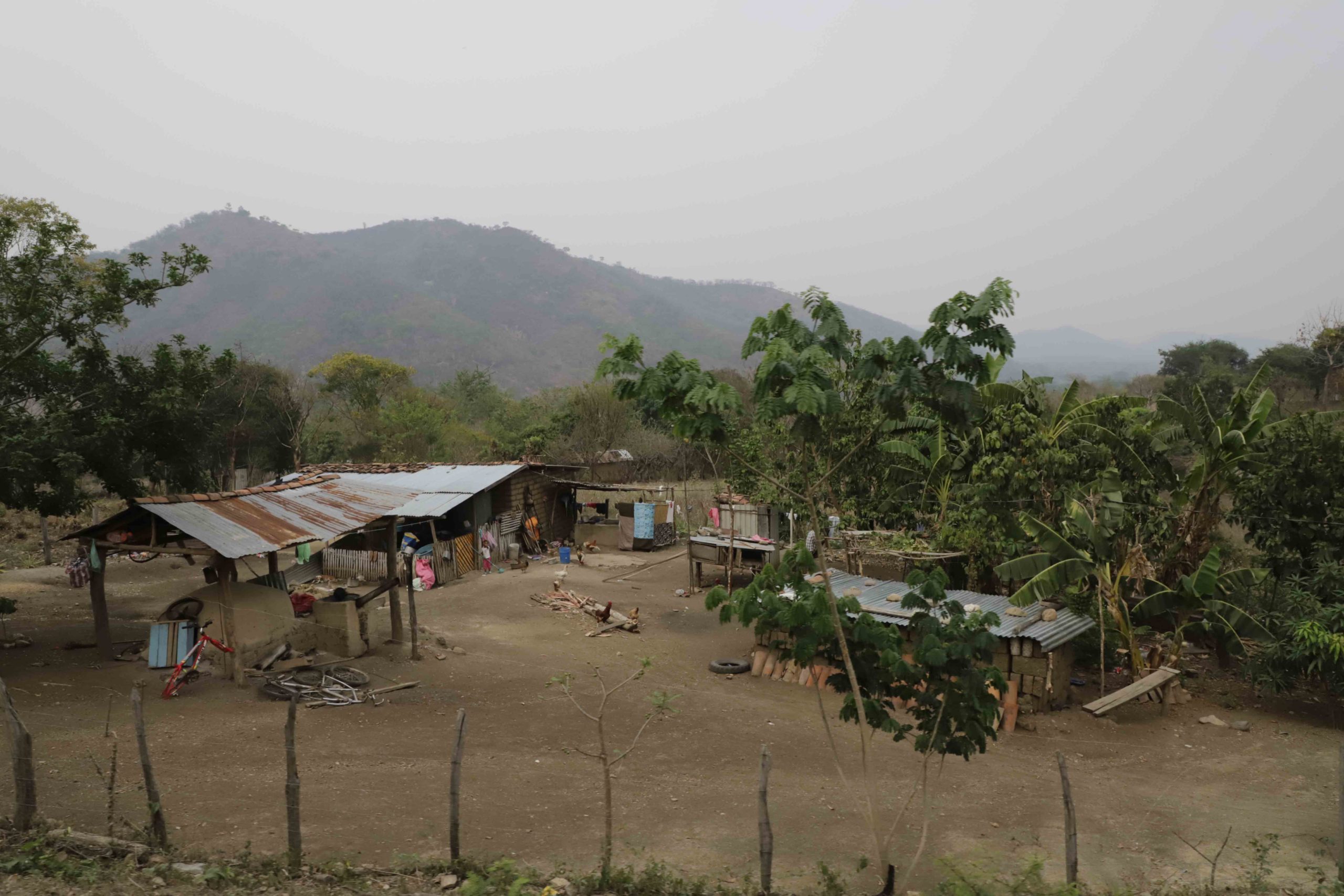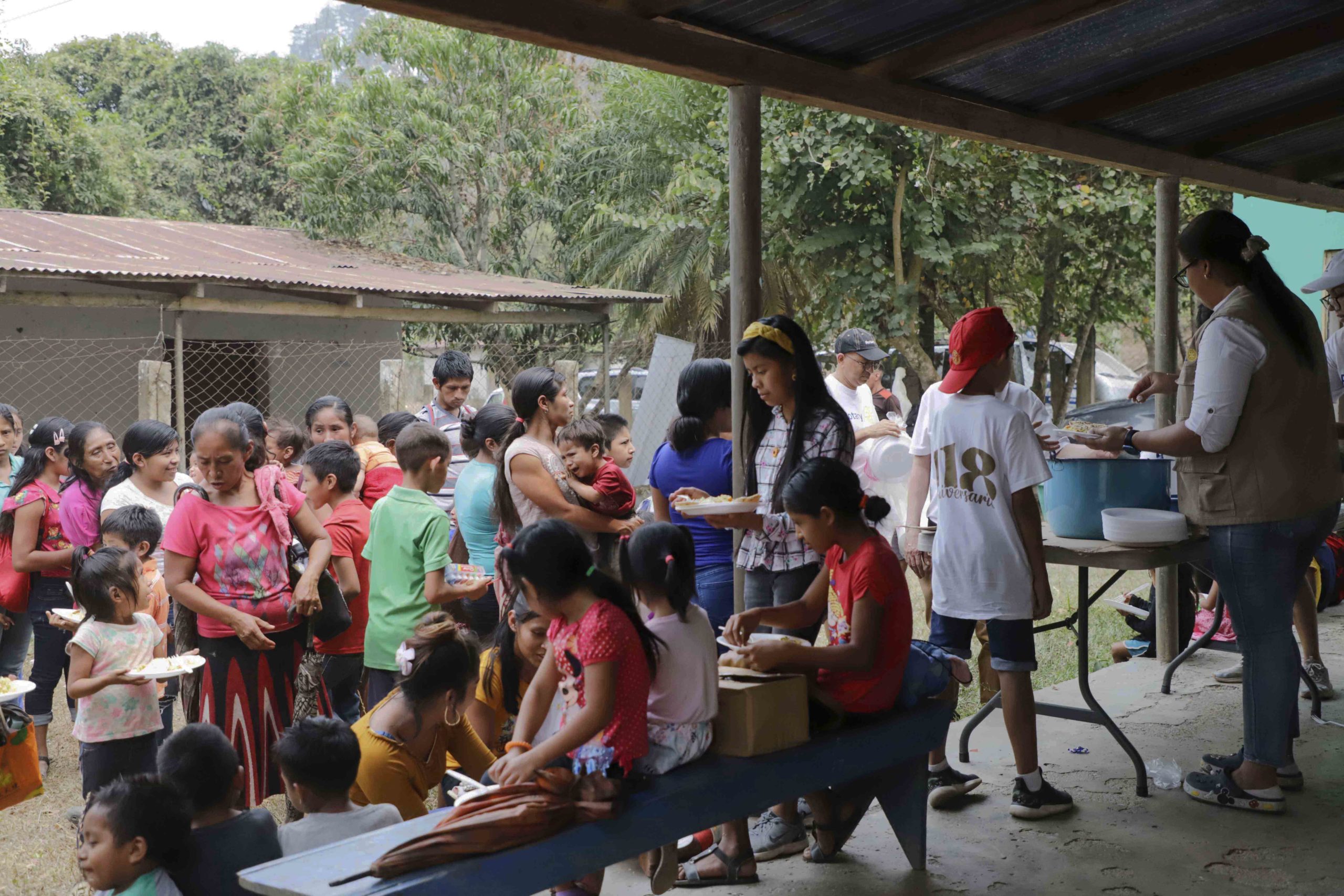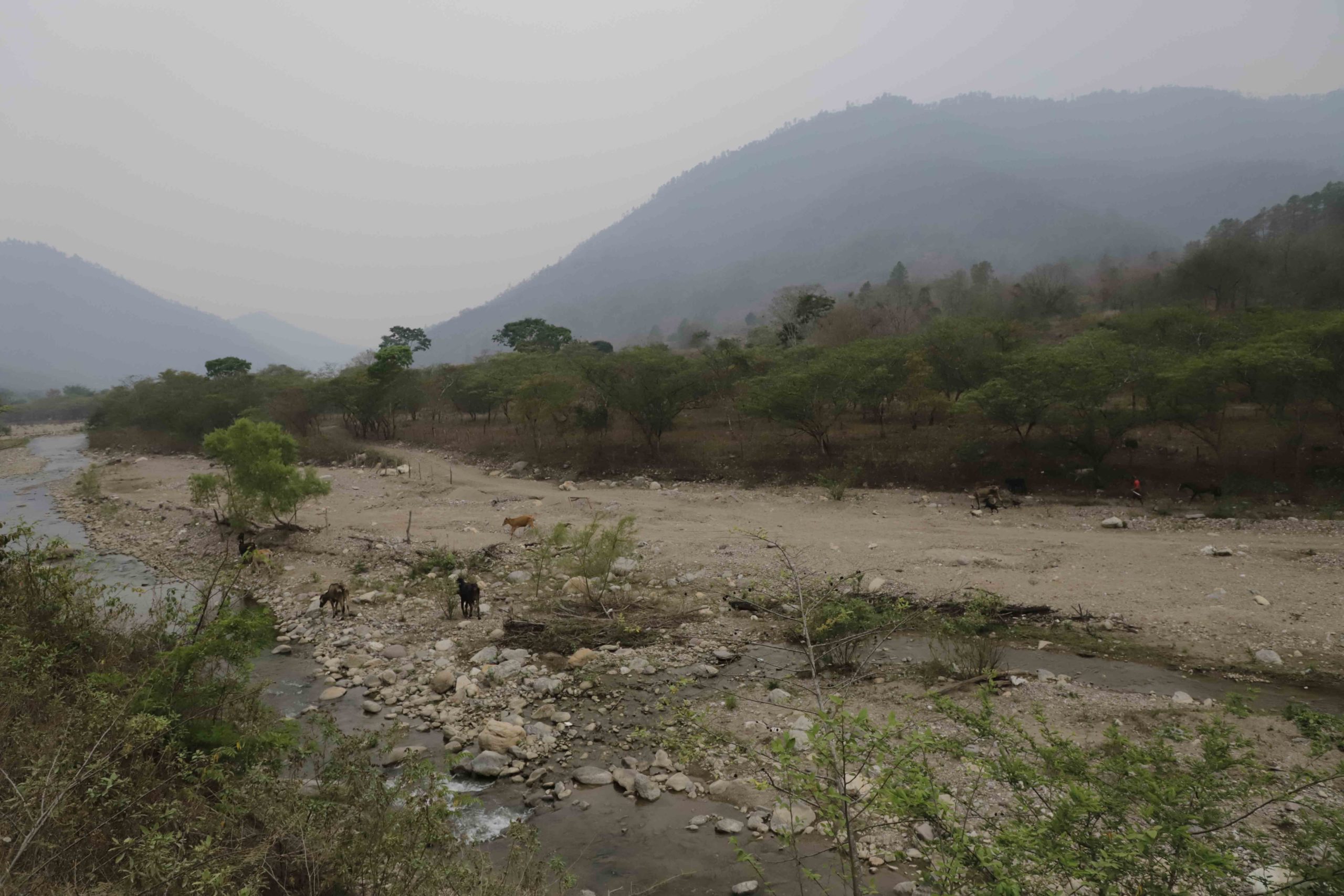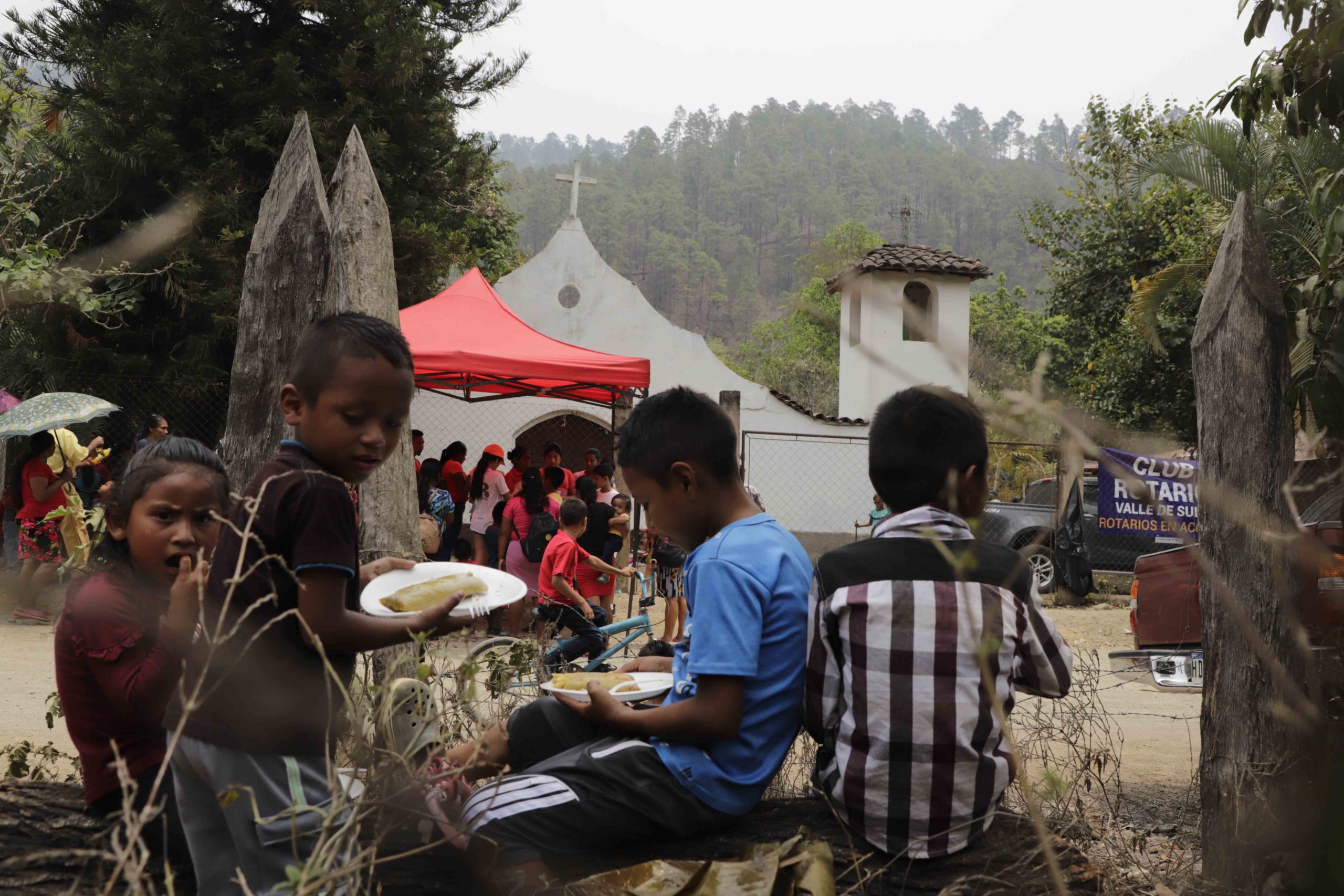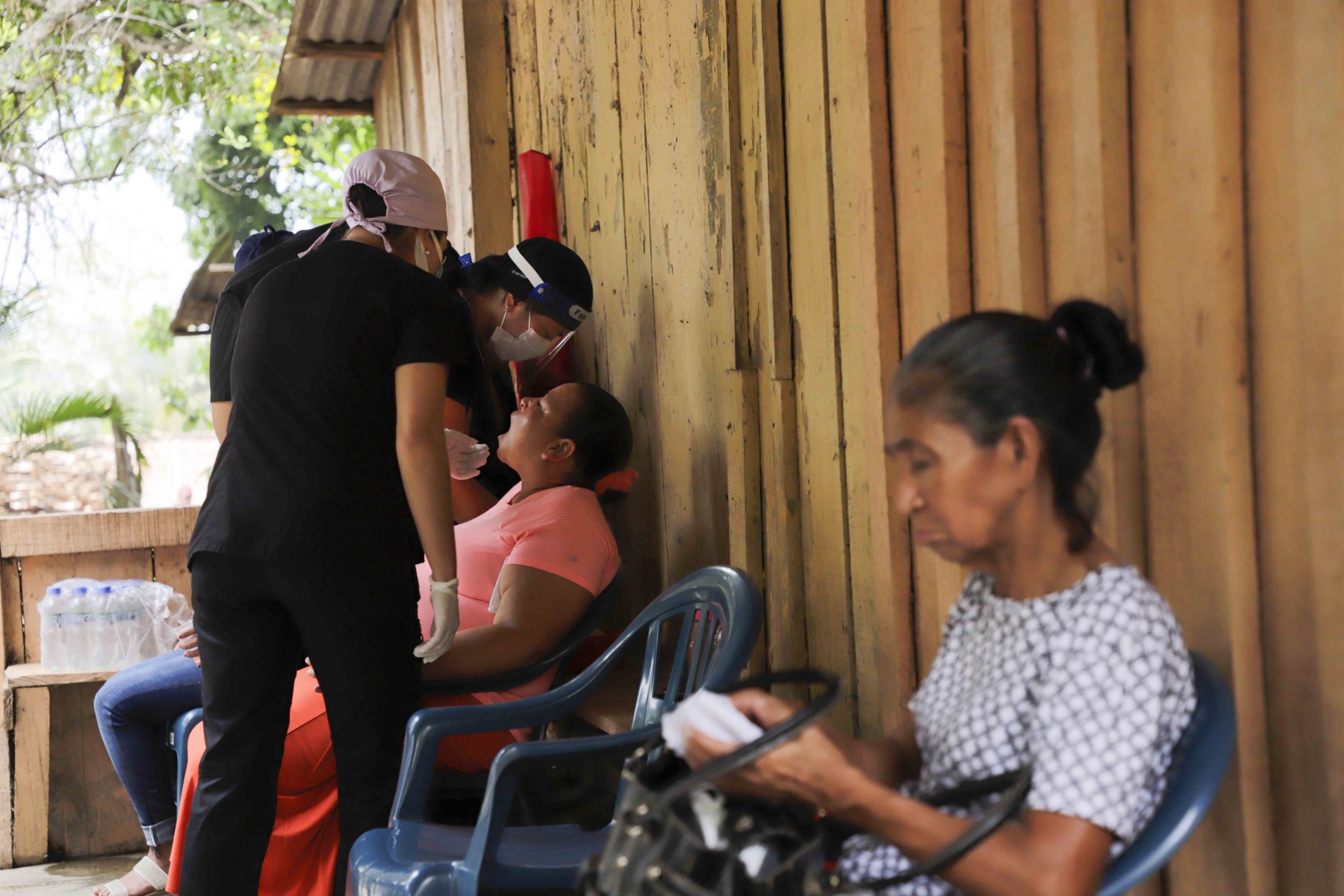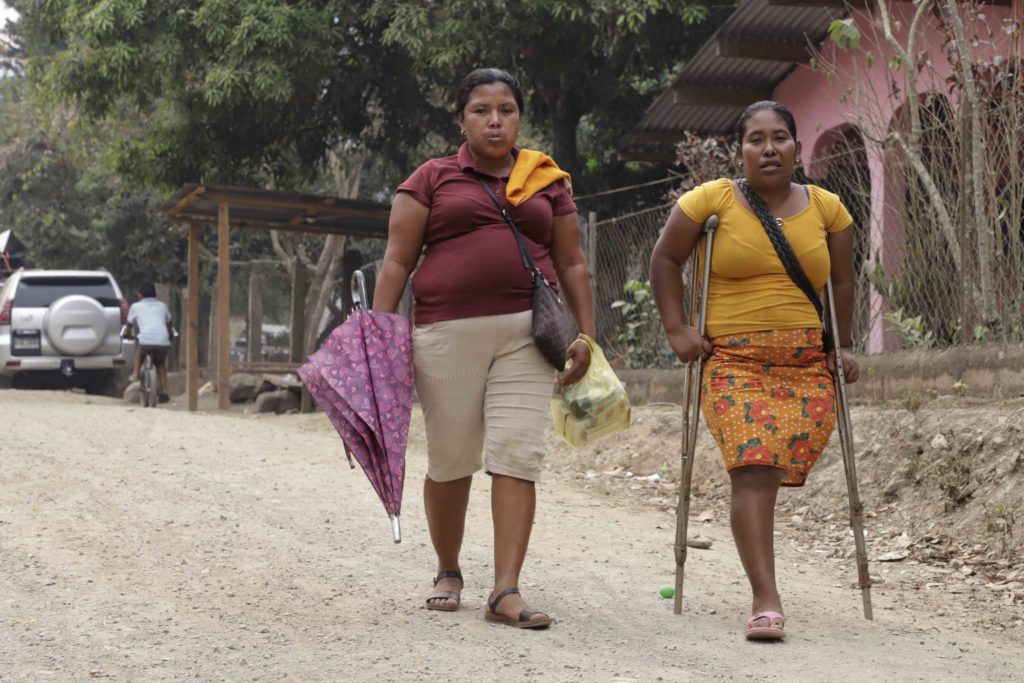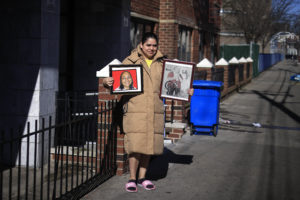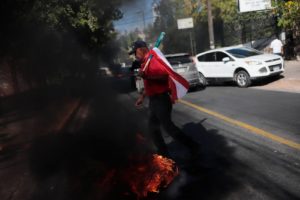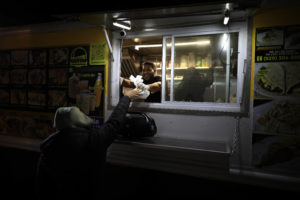The Indigenous Tolupan who live in the mountains of Honduras’ Yoro department have to walk for hours to access basic health care. But when they arrive at a health center, no matter what ails them, there’s only acetaminophen available.
Text: Allan Bu
Photography: Amílcar Izaguirre
Karla Patricia Soto woke up at 4 a.m. on Saturday, April 29, to get ready for a two-hour walk on unpaved roads to Piedra Gorda, where a medical brigade had arrived. She lives in the village of El Palmar with her three sons, who will accompany her. This is a unique opportunity for the community to see a general practitioner, a dentist and a gynecologist.
That day, hundreds of people sought medical attention with the brigade, including a visit to the dentist. Eighty percent of patients were Tolupan, an Indigenous people who have been abandoned by the government, whose duty is to protect their rights and preserve their culture.
Access to health care is one of the many needs the Tolupan people have. They are settled in the departments of Yoro, in six municipalities, and Francisco Morazán, in two municipalities. Karla belongs to a tribe that inhabits a region called Locomapa.
That day, the medical brigade saw more than 1,200 patients, among them adults and children. A group of about 20 doctors had traveled for five hours by bus to get to the center, where they provided medical attention to hundreds of Indigenous Tolupan, some of whom walked for up to five hours to reach the center. This is one of the few opportunities they have to see a doctor and get medicine.
“My body is in pain; my head and my colon hurt, and I have other illnesses,” said Karla when I asked her why she seeks medical attention so far from home. She obtained medicine for herself and her three sons, and it’s “thanks to God and the doctors,” she said.
One of the volunteer doctors from the brigade said that most people who come are not ill, at least at the moment they are seen by a doctor. But since Indigenous peoples have been abandoned by every single administration, the brigades are an opportunity to take preventive measures against illnesses. “Only 15 percent of patients are ill,” the doctor says.
On other occasions, Karla was not seen by doctors after walking for three years to the health center. “It’s tough when you have to travel that far and not get any medicine; at times we have gone back home empty-handed. It’s very difficult to get an appointment at the health center, but thank God we got enough medicine today,” she said.
Karla has also been denied medical attention for arriving late at the health center in the Ocotal village after paying 175 lempiras ($7) for a ride on a motorcycle. She says they don’t take into account that the center is three hours away from her home, and there’s no public transportation. “They say: ‘Patients who arrive late will not be seen by a doctor.’ They see patients who live near the center first, and other ones are seen last because they arrive late and come from afar.”
One day, she and her son, who was badly injured, went to the center, but he was denied medical attention because they arrived at 11 a.m., and the nurse said it was too late. They told Karla she could visit the hospital in Yoro, the administrative center, but it’s a five-hour drive from her house since there’s no public transportation along the entire route.
A roundtrip by bus costs 160 lempiras ($6.48), but only two buses leave each day, and those who make the trip might have to spend the night in Yoro or somewhere else. Karla told them she doesn’t have money which is why she went to the center: “I don’t have money; I’m poor. I should report you so people know how you treat patients,” she told the nurses. She treated her son’s wound with a home remedy.
During the administration of Xiomara Castro, doctors have complained about the shortage of medication in hospitals and have demanded an increase in supply. Secretary of Health José Manuel Mateu told Honduran news outlet Televicentro that some hospitals have been stocked up on medicine at 70 percent of capacity. He also mentioned the administration’s plans to build eight hospitals. However, none of those hospitals will be built in Yoro since there already are three regional hospitals in that department: El Progreso, Olanchito, and Yoro (the department’s capital), which is the closest one to the Tolupan tribes.
The Castro administration’s position is inconsistent because they announced the construction of hospitals while in early May, medical personnel from Hospital del Tórax, where pulmonary diseases are treated, protested at the lack of supplies and medication. Suyapa de Sosa, a medical doctor, told the media they’re using sanitary pads instead of cotton, and this is why they called a strike. This is taking place in Tegucigalpa – Honduras’ capital and the same city where Mateu and Castro live – just a few minutes away from the Presidential Palace and the National Assembly. It’s reasonable to deduce that health services in the mountains of Yoro are more precarious than those of the capital.
“They don’t always have medication at the health center, and, as you know, everyone deals with different health issues. I often have a stinging headache, but when I go to the center, they only give me acetaminophen,” Karla said.
Karla and other people we talked to concur that it wasn’t that bad a few months ago. There was a very committed doctor, who would see Karla, her children and any other patient. But other issues affecting Honduras are present in Locomapa; the doctor’s bike on which he rode to the center was stolen. He got his bike back, but medical attention in the village of El Ocotal hasn’t been the same since. Sometimes he would set up an improvised practice in Piedra Gorda, where he saw up to 180 patients on a single afternoon.
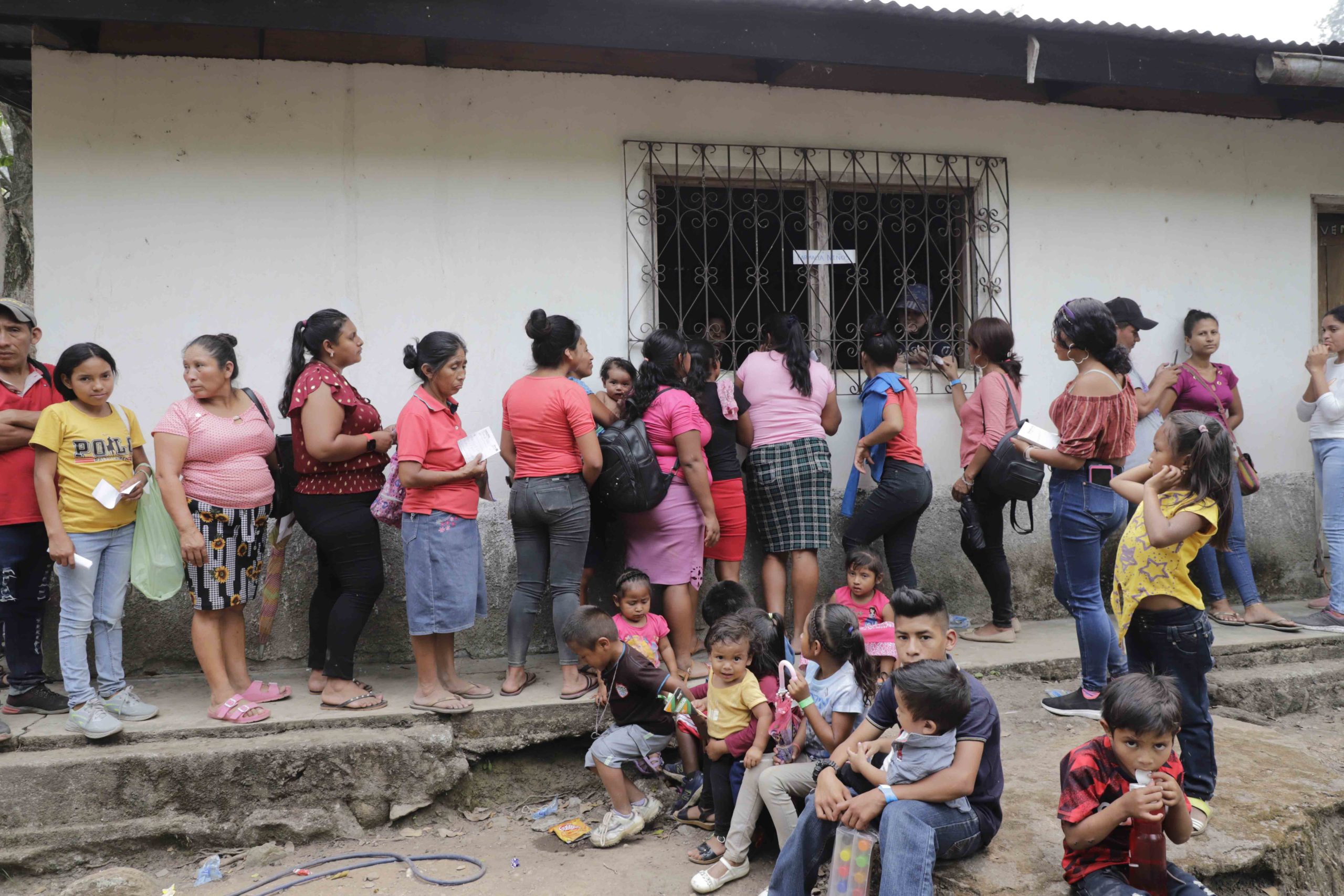
Don José is almost 70 years old. We saw him walk up a slope as he leaned on a piece of wood. He’s a diabetic, can barely move his fingers and his skin has withered. He’s a resident of the Piedra Gorda village and went out to get medicine today. His mother was Tolupan and his father ladino, a person of mixed European and Indigenous ancestry, “which is why I’m taller,” he says, meaning taller than the average Tolupan adult.
The arrival of medical brigades is a unique opportunity to get medicine because he has only been able to obtain acetaminophen at the health center, which is 40 minutes away from José’s house. He says he wanted to report medical personnel who threw away medicine that had expired but changed his mind. His complaint would have probably been forgotten among the many unfulfilled promises from every administration.
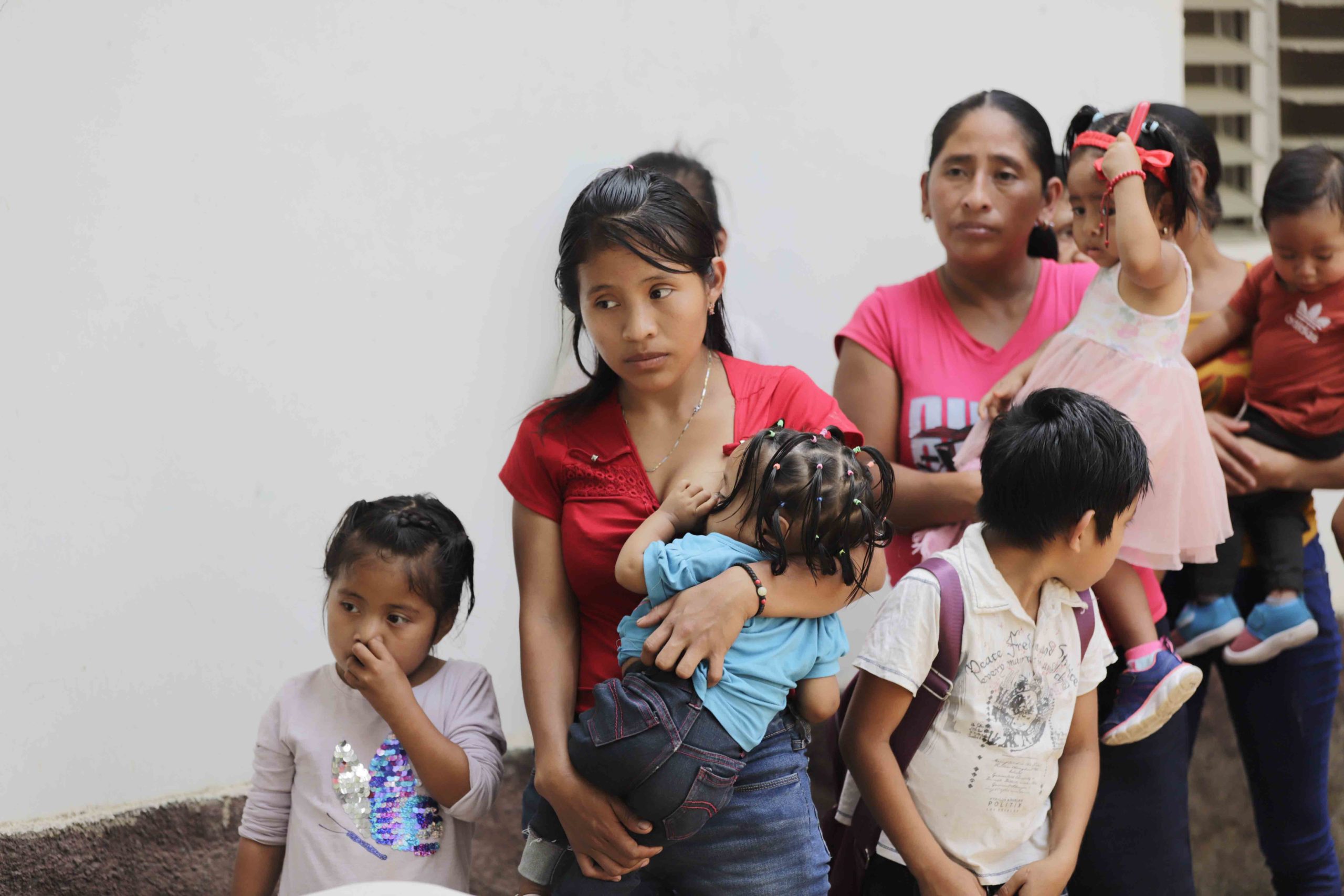
Romelia Romero, 67, walked for about three hours from the village of Mezcales, where she lives, to Piedra Gorda, where the medical brigade came to see patients. She told doctors that she suffers from at least four medical conditions, for which she got medication.
That day, she got medicine for headaches and back pain, which she has every now and then. On other occasions, she has walked for four hours and returned home without any medicine. Romelia also goes to the health center in the village of El Ocotal, and even though she has obtained some medicine, she has had to pay 15 lempiras ($0.61) for an appointment – which is too much for a 67-year-old woman who lives alone in a remote village in the mountains of Yoro. “Patients can get medicine, but they have to pay. Once, I had to pay for an appointment (15 lempiras) and for transportation,” she said.
Romelia is among the 74 percent of Hondurans living in poverty. This is why she only has access to basic health services and education provided by a corrupt and incompetent government, which has not done enough to address the needs of Indigenous peoples.
Merary Soto, who’s not Karla’s relative, is a Tolupan leader from the village of Piedra Gorda. Besides the lack of health services, most Tolupan don’t own decent housing; a problem that unfortunately doesn’t only affect Indigenous peoples in this country, she says. According to a 2020 study by Habitat for Humanity, Honduras is in need of 522,076 new homes and 844,000 were in urgent need of remodeling. That study was carried out before hurricanes Eta and Iota, which destroyed close to 10,000 homes, according to official data.
Employment is another challenge for the Tolupan people. Men earn 150 lempiras ($6) for a day of work growing and harvesting corn and beans in El Ocotal, Piedra Gorda, Mezcales and other nearby communities. Moreover, alcoholism is a serious problem among Tolupan men, who usually save money for half a liter of sugar-cane liquor and spend the rest on food,” Merary said.
Coffee harvest season is an opportunity to earn money, but it only lasts three months. Merary says the cycle continues: men spend a large part of their income on alcohol which frequently leads to domestic violence. “I don’t know what it’s like to be physically abused, but in some households the father drinks too much, doesn’t buy enough food and physically abuses his relatives,” she said.
Gender violence is an issue that has its roots in the idiosyncrasy of a patriarchal and dogmatic country. These are problems the Tolupan people have not been able to overcome. And they are facing many issues besides the shortage of medicine at health centers.
